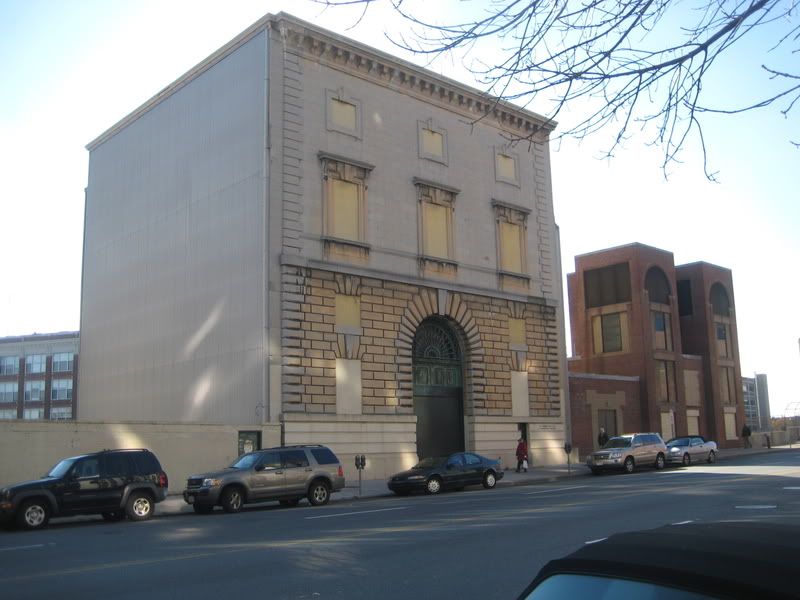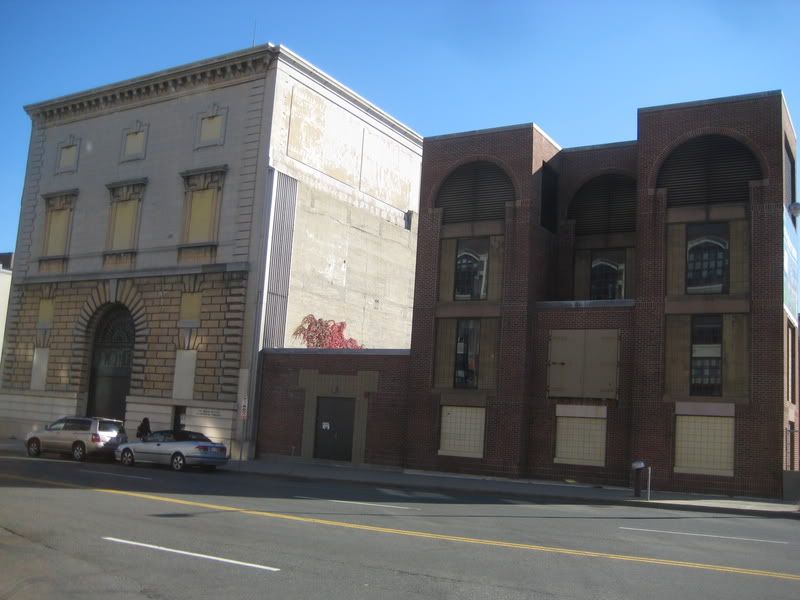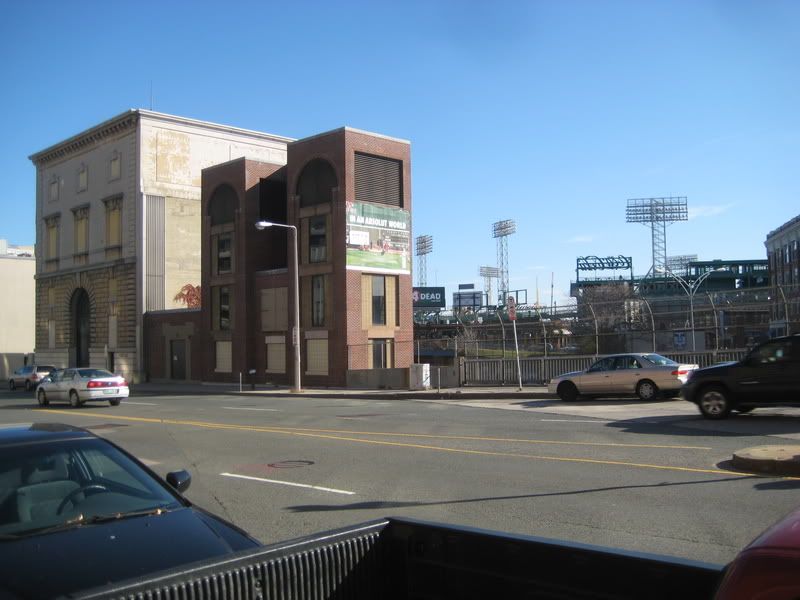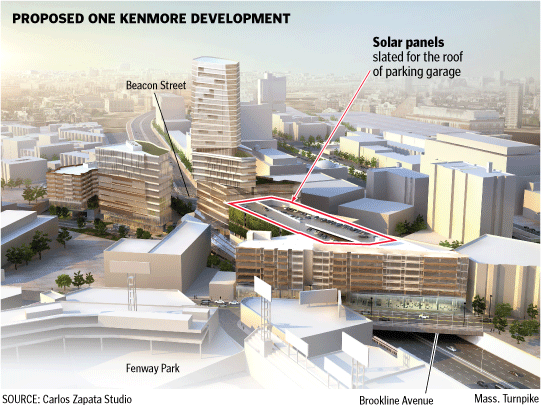Re: Fenway Center (One Kenmore, Mass Turnpike PARCEL 7)
Project's solar panels could power apartments
By Casey Ross, Globe Staff | January 21, 2009
Developer John Rosenthal wants to build what would be the state's largest solar installation atop one of the buildings in his sprawling development along the Massachusetts Turnpike near Fenway Park.
The solar farm would be installed on the roof of a parking garage that Rosenthal would build over the turnpike by Brookline Avenue. Altogether, Rosenthal's proposed One Kenmore development is a five-building complex that includes a 27-story residential tower, 367,000 square feet of offices, retail stores, and 1,290 parking spaces.
Rosenthal said the solar farm could produce up to 450 kilowatts of electricity, enough to power about 100 of the 330 apartments he wants to build on land between Brookline Avenue and Beacon Street.
"The beauty of it is that the energy generated through the solar array would be used both on site and could feed into the energy grid," said Rosenthal, who in the 1970s and 1980s demonstrated against nuclear power. "To build this is a dream come true for me."
The One Kenmore project, including the solar installation, still needs approvals from state regulators and city officials. The Boston Redevelopment Authority is expected to vote on the development plan after a public hearing scheduled for next Thursday.
A top city official sounded initial support for the solar component yesterday, saying it would help advance Mayor Thomas M. Menino's goal of developing 25 megawatts of solar power in the city by 2015. Currently, the city has solar installations that produce about 1 megawatt of solar power and others under development that would combine to produce another 1 megawatt.
"This reduces energy demand, saves money for residents, and advances the city's greenhouse reduction goals," said Jim Hunt, the city's director of energy and environment.
State Environmental Secretary Ian Bowles said Rosenthal was required to examine energy use alternatives under the state's environmental permitting statute. He said the solar farm would be the largest in the state, eclipsing the 425-kilowatt Brightfield development in Brockton.
"This is emblematic of the kind of clean-energy installations we're looking for in major real estate developments," Bowles said. "What we're finding in the real estate community is that making these green commitments is often far more cost effective and practical than widely believed."
Last year, the state began offering rebates to encourage businesses and residents to install solar panels on their properties. The cost of solar panels has also decreased because there are now many more installers available in Massachusetts, 75 compared to just 25 a year ago, Bowles said.
Rosenthal said he intends to apply for government subsidies from both federal and state incentive programs. He said he will not seek additional aid to help pay for construction of his development.
The One Kenmore development also includes construction of a new Yawkey commuter rail station and access roads into the property. The state earmarked $24 million to pay for those upgrades from a previously approved economic stimulus plan.
The Red Sox are a minority partner in One Kenmore. The New York Times Co., owner of the Globe, is part owner of the company that owns the team.
Construction of Yawkey station is expected to begin in 2010, with work on One Kenmore to start in late 2010 or 2011.
Casey Ross can be reached at
cross@globe.com.
http://www.boston.com/lifestyle/gre...projects_solar_panels_could_power_apartments/





